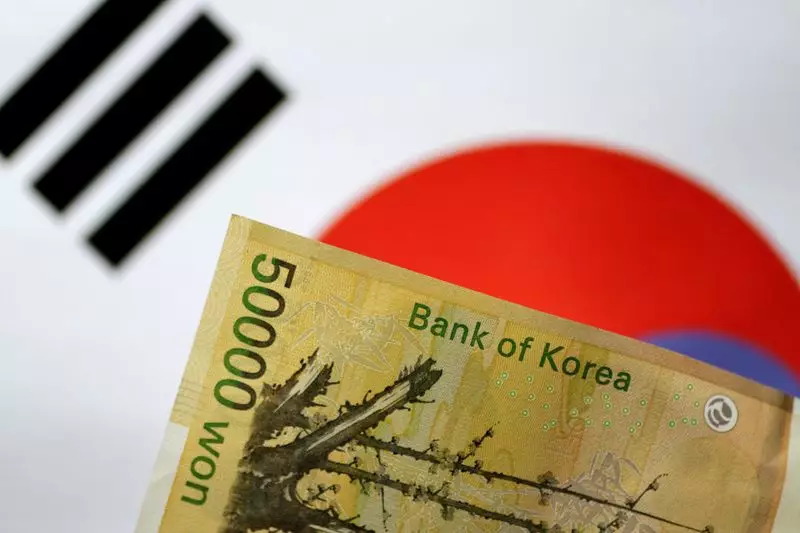The landscape of South Korea’s economy is currently being scrutinized through a lens tinted by political turmoil. The central bank’s governor, Rhee Chang-yong, recently emphasized that the immediate future of the nation’s economy hinges more on political stability than on external economic factors like U.S. monetary policy. This shift underlines a critical evolution in how economic health is determined, placing political dynamics at the forefront. Rhee articulated that the economic environment would benefit from a normalized political process, suggesting that internal governance issues have begun to overshadow traditional economic indicators such as interest rates and trade policies.
The Bank of Korea’s decision to maintain interest rates at 3.00% illustrates a cautious approach in the face of national instability. This decision came after a period of considerable uncertainty following President Yoon Suk Yeol’s controversial push for martial law, which has ignited public discontent and led to the government revising its economic growth forecast for 2025 from 2.2% to a mere 1.8%. Such cuts in growth projections often reflect a broader trend of hesitance among investors and consumers, spurred by concerns about the government’s legitimacy and its ability to manage economic matters effectively.
Moreover, the acknowledgment of the need to stabilize the South Korean won is indicative of the delicate balance central banks must strike amidst political strife. The volatility of the won, exacerbated by political events, points to an interconnectedness between governance and economic stability that is becoming increasingly pronounced.
The recent arrest of President Yoon, a significant historical event marked by its orderly execution, has triggered a mixed reaction within the financial markets. Following his apprehension, the won experienced a temporary uptick, bolstered by both domestic and international factors. Rhee pointed out that the U.S. inflation report also played a role in the dollar-won exchange rate fluctuations, but it is evident that local political developments have a substantial impact on currency valuation as well.
Despite the brief respite brought on by Yoon’s arrest, analysts remain skeptical about the long-term prospects for political stability in South Korea. The situation is evolving, with further investigations into Yoon’s alleged insurrection looming. The ongoing uncertainty raises questions about whether South Korea can maintain a coherent policy direction amidst a fragmented political landscape, potentially jeopardizing investor confidence and economic growth.
The Road Ahead for South Korea’s Economy
As South Korea navigates this unprecedented political episode, the central bank’s focus on fostering political stability as a precursor for economic growth emphasizes a fundamental shift in the interplay between politics and economics. The financial markets, influenced by domestic governance, will require close monitoring as each development unfolds. The broader implications for economic policy and growth prospects remain uncertain, but one thing is clear: the integrity of the political process will be integral to restoring confidence in South Korea’s economy. The road ahead may be fraught with challenges, but the hope is that a return to stability will pave the way for renewed economic vigor.

